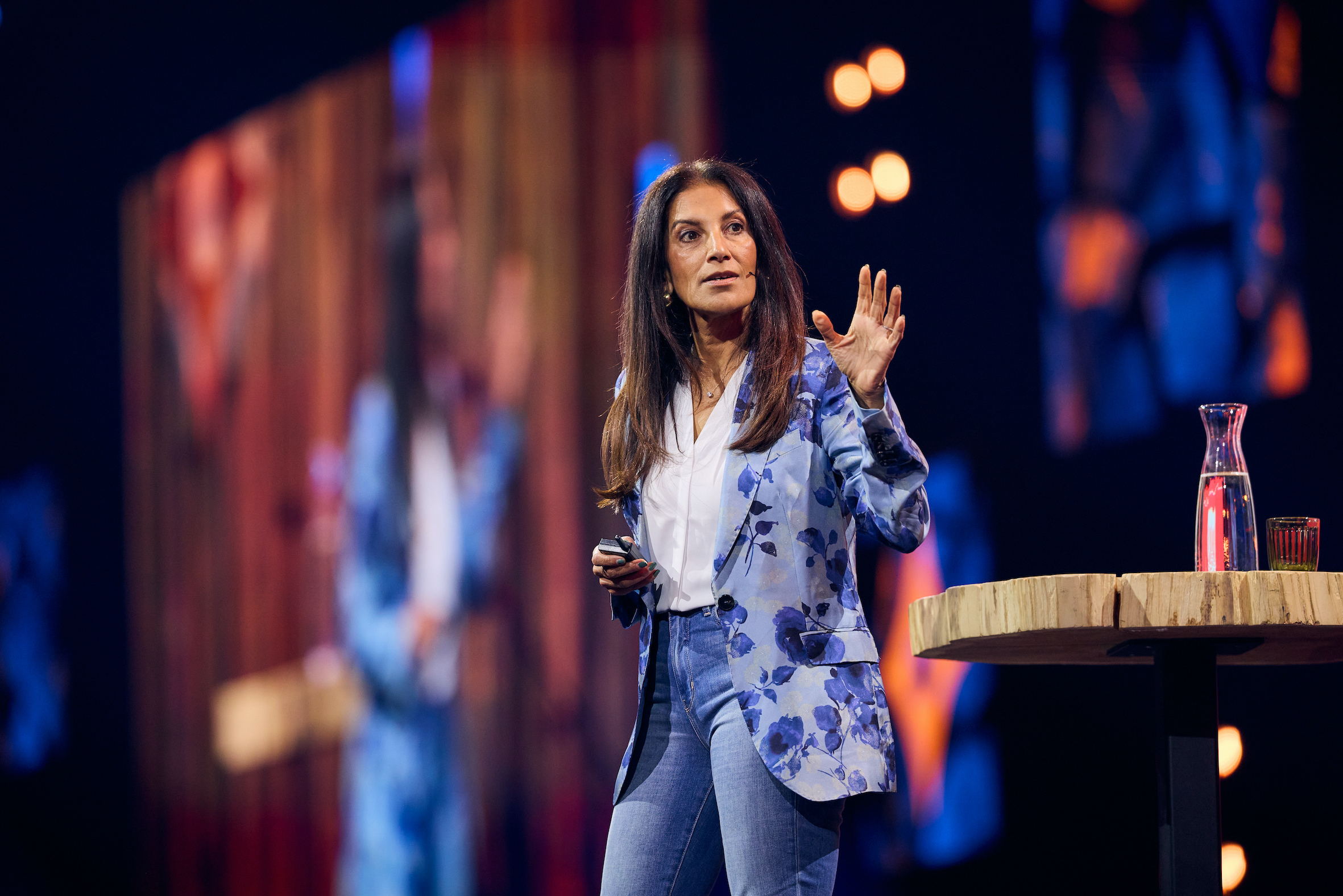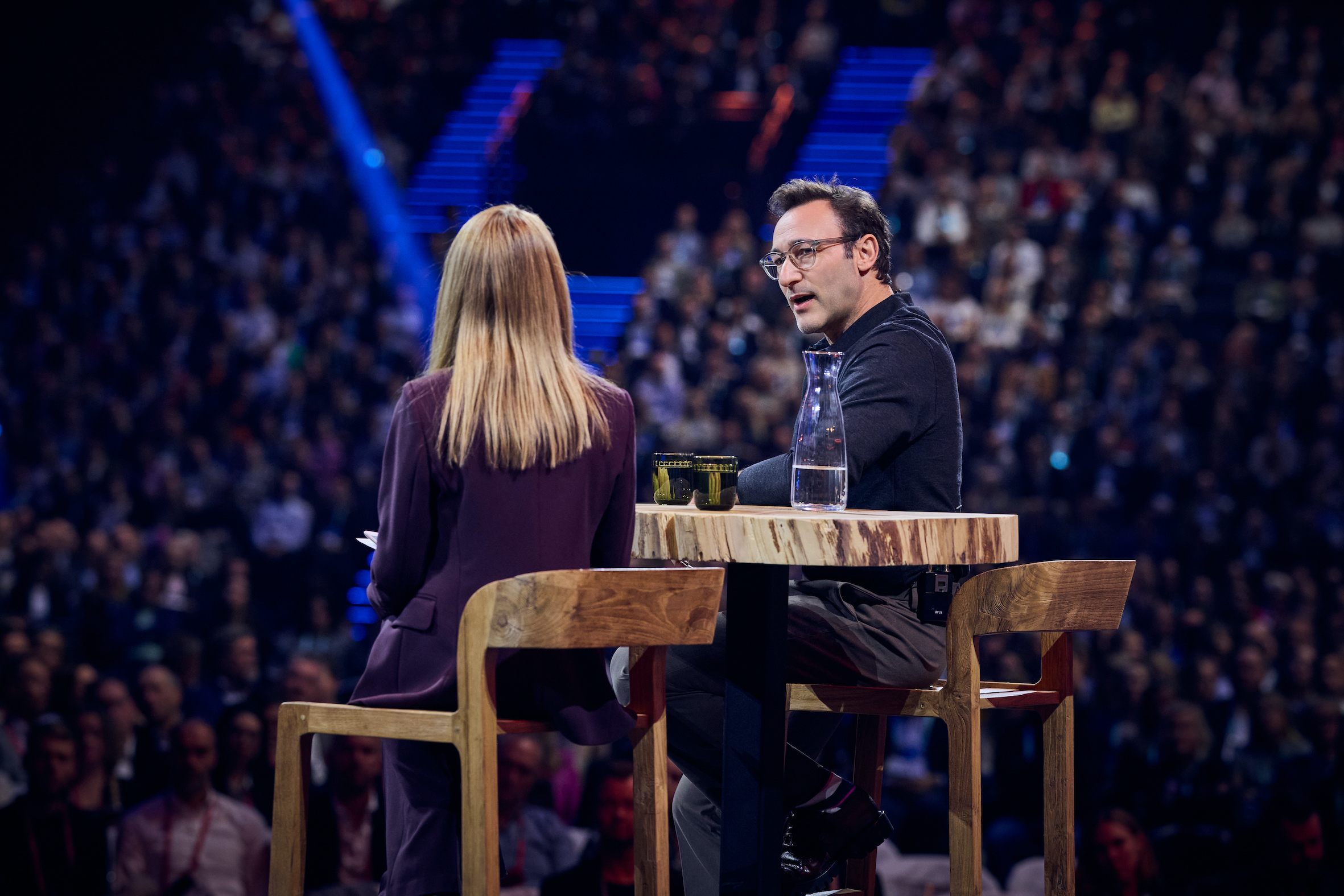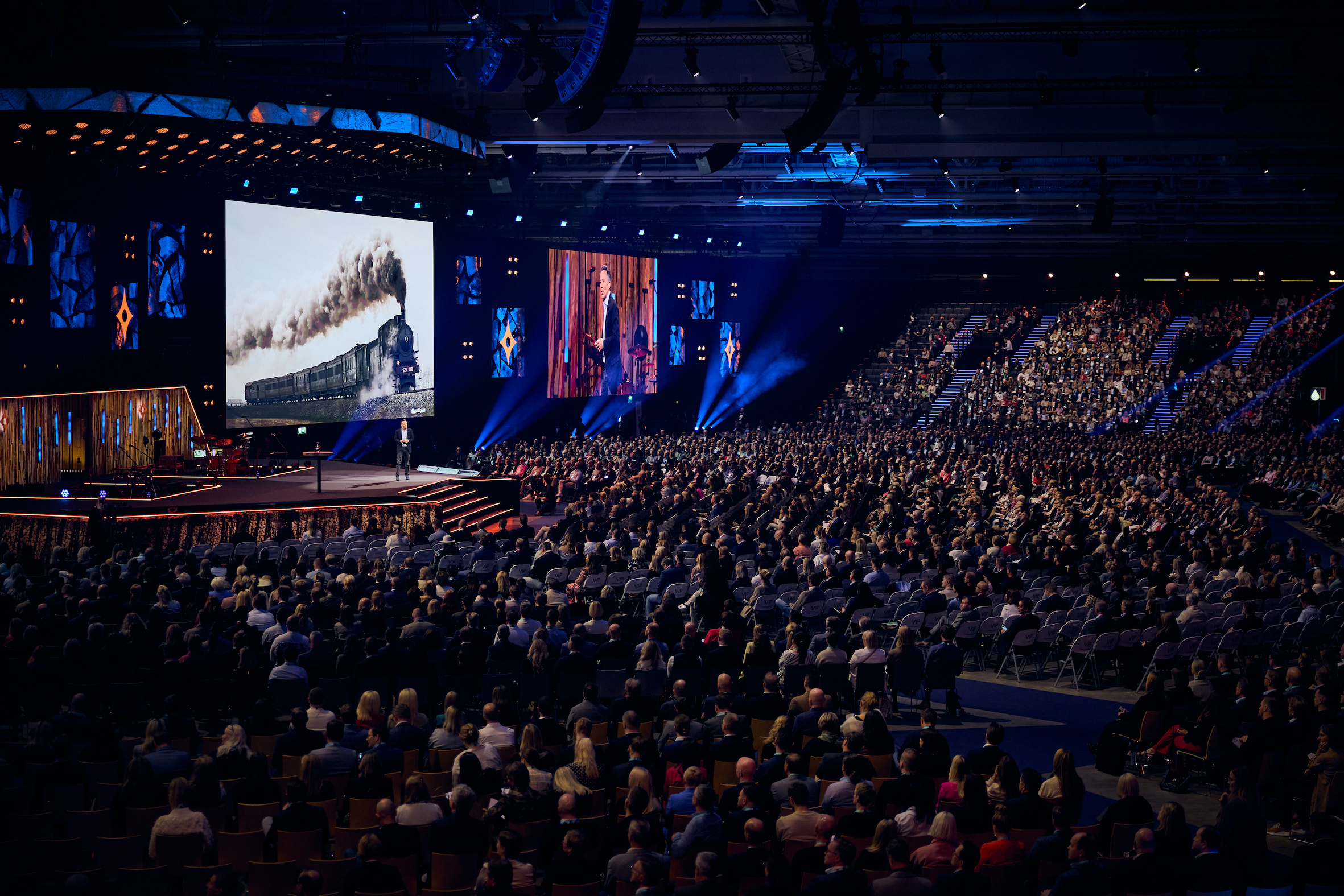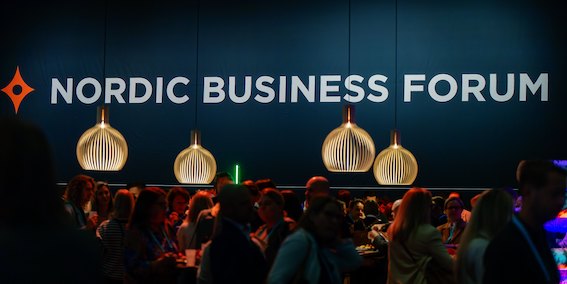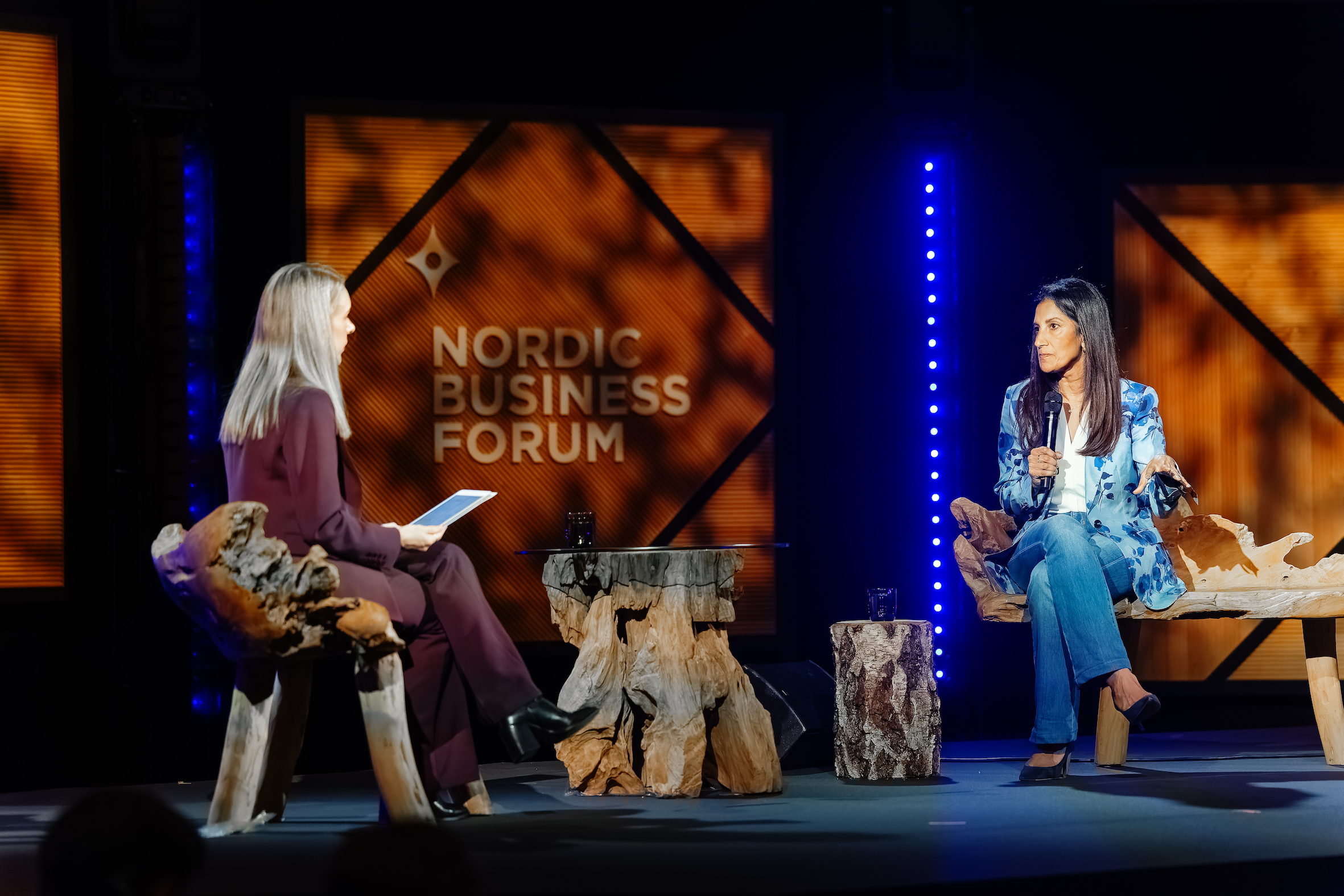The Nordic Business Forum 2025, held from September 24-25 in Helsinki, Finland more than 7,500 executives and entrepreneurs from over 40 nations under one resonant theme: Moving Forward. For two days, the stage became a crucible of ideas where global leaders—visionaries from business, culture, and innovation—shared not only strategies but also deeply human insights on what it takes to thrive in a world defined by disruption.
The Forum has long been a magnet for world-class speakers, from Barack Obama to Malala Yousafzai. This year was no exception. The lineup blended iconic women leaders such as Angela Ahrendts, Milda Mitkute, Sukhinder Singh Cassidy, and April Rinne, with influential voices like Simon Sinek, Rick Rubin, Jonah Berger, and Peter Hinssen. Together, they painted a picture of leadership that is less about control and more about courage, empathy, and foresight.
Women Leading with Purpose and Soul
Angela Ahrendts, former CEO of Burberry and Apple Retail executive, reminded leaders that transformation begins with humanity. “If you’re not changing, then are you doing your job?” she asked, underscoring that empathy and authenticity are not soft skills but strategic imperatives. Her career—from reviving Burberry by honoring its heritage to reinventing Apple Stores as community hubs—proved that legacy and innovation can coexist when guided by purpose.
Milda Mitkute, co-founder of Vinted, shared how transparency and humility fueled the rise of Europe’s largest secondhand fashion platform. “A company can be scalable only if all levels of the company feel ownership,” she said. Her story is a testament to how admitting what you don’t know can create a culture of empowerment and resilience.
Sukhinder Singh Cassidy, CEO of Xero, offered a candid blueprint for scaling culture without losing soul. She urged leaders to evolve values regularly and to listen to “constructive agitators”—those who challenge the status quo because they care. “Culture must change to keep meeting your purpose,” she emphasized, reminding executives that culture is not a museum piece but a living system.
April Rinne, futurist and author of Flux, reframed change as opportunity. “A lot of what we’ve been taught assumes a world we can control,” she said. Her Flux Mindset encourages leaders to slow down, let go of outdated beliefs, and learn to see the invisible forces shaping tomorrow.
Men Challenging the Status Quo
Simon Sinek, the leadership visionary behind Start With Why, urged leaders to abandon short-termism. “In business, there’s no such thing as winning. There is only playing better for longer,” he said, introducing his Infinite Game framework. His call to replace judgment with curiosity resonated deeply in a world where psychological safety is becoming a competitive advantage.
Rick Rubin, legendary music producer, reminded the audience that creativity is not confined to art. “Creativity comes from a connection to what’s going on inside of you,” he said, encouraging leaders to trust intuition and embrace imperfection as a path to progress.
Jonah Berger, Wharton professor, highlighted that persuasion is less effective than design. “If you want to drive action and growth, stop persuading—start designing environments where people convince themselves.” His insight reframed growth as an exercise in removing barriers rather than pushing harder.
Peter Hinssen, innovation strategist, warned against clinging to outdated logic in what he calls the “never normal.” “The greatest danger in times of turbulence is not the turbulence. It’s to act with yesterday’s logic,” he said. His Day After Tomorrow framework challenged leaders to dedicate energy not just to today’s tasks, but to the radical ideas that will define the future.
A Forum of Ideas, A Call to Action
Across two days, a unifying thread emerged: leadership is no longer about hierarchy, but about humanity. Whether it was Ahrendts’ call for empathy, Mitkute’s culture of ownership, Cassidy’s evolving values, Rinne’s embrace of flux, or Sinek’s infinite mindset, the message was clear—businesses that endure are those that align purpose with people.
For women in business, the Forum offered both validation and inspiration. The women on stage did not simply share success stories; they modeled a new kind of leadership—one that is transparent, adaptive, and unapologetically human. And the men who joined them reinforced that the future of leadership is not gendered, but collective.
Leadership is not about titles—it is about impact. The Nordic Business Forum 2025 proved that the leaders who will shape the next decade are those who dare to combine foresight with empathy, strategy with soul, and ambition with authenticity. The real question is: Will you lead with the courage to evolve, the humility to listen, and the vision to inspire?
Because as Angela Ahrendts reminded us, “Great leaders of the future will lead with authenticity, empathy, and human connection.” And that is precisely the kind of leadership the world—and women in business—are ready to deliver.

